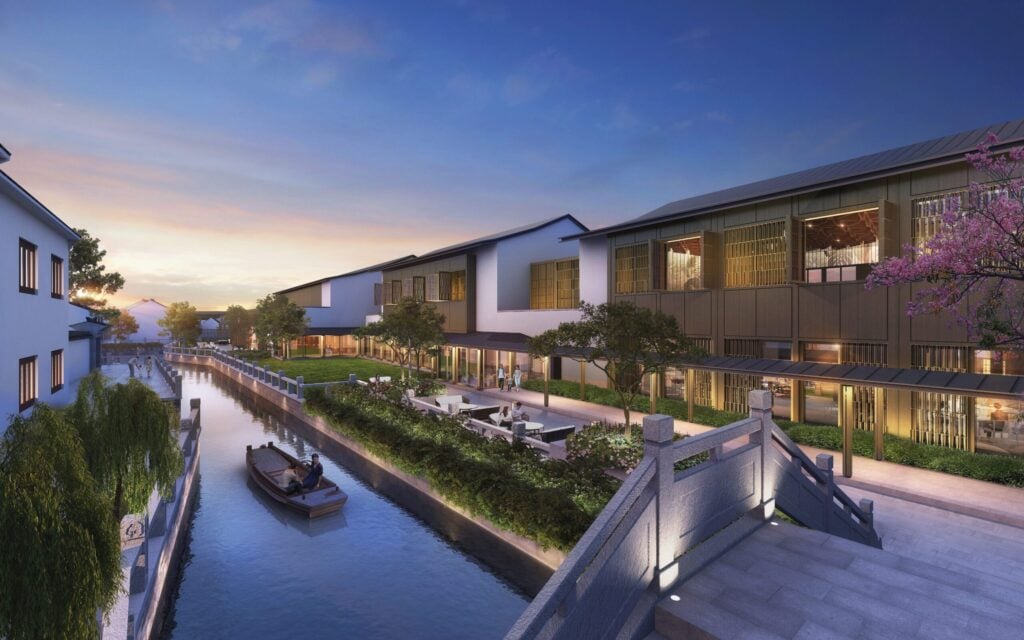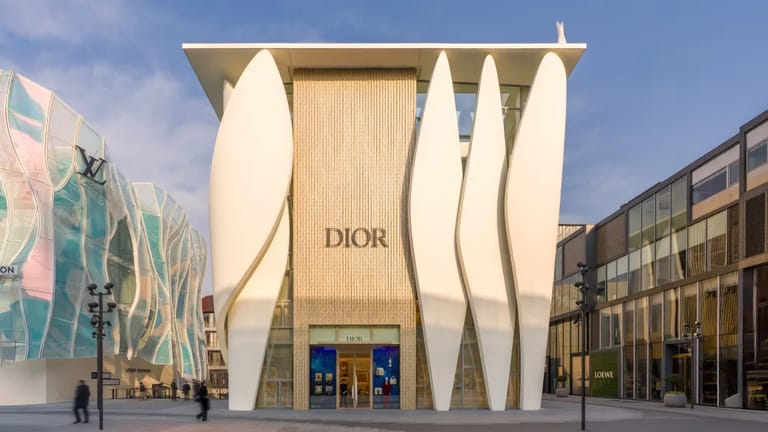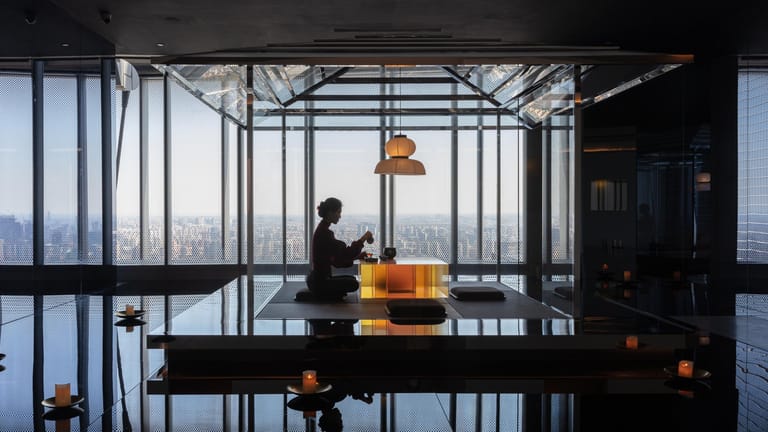Accor CEO Greater China: Redefining Luxury Hospitality for a New Era
By
Wenzhuo Wu

Published on
March 25, 2025

Jingzhi Brand spotlights the most forward-thinking domestic and global brands shaping China’s jingzhi(精致) landscape. Through in-depth storytelling, we explore innovation, cultural strategy, and market ambition, offering a holistic perspective on the evolving intersection of brand identity and China’s dynamic consumer economy.
As China’s hospitality sector navigates a post-pandemic rebound, Accor stands at the forefront of redefining luxury experiences for an evolving consumer base. With outbound travel resurging and domestic preferences shifting towards culturally enriching, experience-driven stays, Accor’s CEO Greater China, Gary Rosen, shares insights into the brand’s strategy and vision for the future.
China remains one of the world’s most dynamic and competitive hospitality markets. As consumer expectations shift towards more personalized, culturally immersive experiences, hospitality brands must continuously innovate to stay relevant. With its deep-rooted presence in China, Accor is leading this transformation—blending heritage with modernity, sustainability with luxury, and local authenticity with global excellence.

The Pulse of China’s Travel Market
Rosen describes 2024 as a pivotal year, one that offers a clearer picture of Chinese travel behavior in a post-pandemic world. “I’m cautiously optimistic,” he says. “As outbound travel resumes, we now have the opportunity to assess shifts in demand, particularly in the luxury sector.”
One of the most striking trends is the shrinking booking window, with travelers making decisions within mere days. Rosen notes that this spontaneity is unique to China and presents dynamic opportunities for hospitality brands looking to capture demand in real-time. Meanwhile, inbound travel is also picking up, signaling renewed interest from global executives and luxury brand teams eager to reconnect with the Chinese market.
Redefining Luxury
Traditional notions of luxury are shifting to more refined, experience-led interpretations. “Luxury today is about time—quality moments with family and friends, immersive cultural experiences, and authentic local engagements,” Rosen explains. Chinese travelers are eschewing conventional luxury hotspots in favor of unique, culturally rich destinations.
This shift aligns with the broader trend of opulence blending with lifestyle, where hospitality integrates seamlessly into daily experiences. Accor is actively expanding its mixed-use developments, combining hotels with entertainment, dining, and wellness concepts. “We’re seeing demand for spaces that go beyond accommodation,” says Rosen. “It’s about creating an ecosystem where travelers feel like locals rather than just visitors.”
Embracing the Jingzhi Mindset
A significant driver of this evolution is the growing embrace of jingzhi (精致)—a philosophy of refinement that moves beyond the hollow glitz of traditional luxury, as highlighted in the Luxury Through a New Lens: 2025 Jingzhi China Vision Report launched by Jingzhi Chronicle. Rosen views this as a defining characteristic of China’s modern consumer. “Chinese travelers are among the world’s most sophisticated. They seek luxury that’s understated yet deeply meaningful,” he notes.
Accor has embedded this philosophy into its offerings, prioritizing local culture and experiential travel. Take Mondrian Hong Kong, for instance. Its allure extends beyond design to embrace its surroundings. “It attracts travelers eager to discover hidden culinary gems, vibrant street markets, and a different side of Hong Kong,” Rosen explains. This shift from material excess to authentic experiences underscores a broader transformation in what luxury means to Chinese consumers.
Further reinforcing this commitment, Accor’s MGallery Collection is expanding rapidly in China, with four new openings in 2024: Fashion Town Hotel Shenzhen, Dangkou Ancient Town Hotel Wuxi, and Ming Hotel Nanjing, as well as Chengdu Expo Waterfall Hotel, all under Accor’s curated brand MGallery Collection. These additions bring the brand’s Greater China portfolio to nine operational hotels, with over a dozen more in development.

“We are excited to celebrate three new openings for MGallery Collection—one of our fastest-growing hospitality brands in Greater China,” says Rosen. “MGallery was founded on the vision that every place has a soul and a unique story that connects guests to the local culture. Here in Greater China, these new hotels are raising the bar for distinctive hospitality experiences, with strong design identities, sophisticated guest experiences, and a sustainable mindset. We invite travelers to discover these intriguing new MGallery destinations, with the assurance of intimacy, warmth, and an overall sense of well-being they have come to expect from this unique and progressive hospitality brand.”
The Road Ahead: China’s Market in 2025
For businesses eyeing growth in China, agility remains key. Rosen warns against complacency, emphasizing that past strategies may be insufficient. “2025 will be a transition year, not just a comeback. China remains the world’s best consumer story, but flexibility is key. Chinese consumers have world-class alternatives and expect brands to deliver real value.”

Accor’s response? A deep commitment to localization, from technology to consumer engagement. “Our reservation and loyalty platforms were built in China, not merely adapted. This ensures seamless user experiences that resonate with local consumers.”
Beyond digital innovation, Accor leverages its rich heritage to stay ahead. With four of the world’s most storied upscale brands—Orient Express, Raffles, Fairmont, and Pullman—the company blends tradition with modernity. “We’re redefining luxury not just within hotels, but beyond them—whether through the revival of Orient Express trains or sustainable sailing yachts,” says Rosen. “Sustainability is paramount for younger travelers, and we are ensuring they don’t have to choose between eco-consciousness and luxury.”
Shaping the Future of Hospitality
As the Chinese market continues to evolve, one certainty remains: The demand for personalized, meaningful, and experience-driven luxury will only grow. With a strategy rooted in cultural immersion, technological agility, and sustainability, Accor is not just adapting to change but shaping the future of travel in China.
For brands looking to make an impact in this dynamic market, Rosen’s message is clear: embracing China’s pace means understanding the country’s consumers and redefining luxury on their terms.












